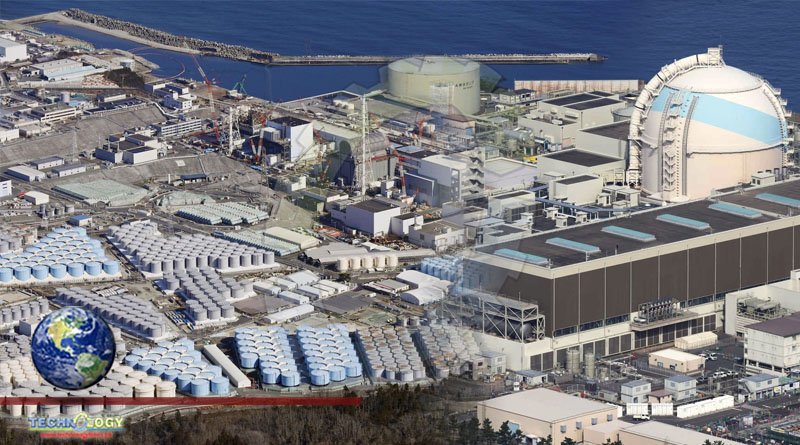Three agreements were signed by UAE with Chinese nuclear energy organisations, which experts believe is just the beginning of the nation’s and region’s nuclear energy objectives.

Three agreements were signed by the United Arab Emirates with Chinese nuclear energy organisations on Sunday, which experts believe is just the beginning of the nation’s and region’s nuclear energy objectives.
Memorandums of Understanding have been signed by the China Nuclear Energy Industry Corporation, China National Nuclear Corporation Overseas, and Emirates Nuclear Energy Corporation, which is growing the nuclear energy industry in the UAE.
As part of its strategy to switch 6% of its energy needs to nuclear power in order to achieve its net zero by 2050 plan, this is happening months before the UAE hosts the COP28 global climate summit this year.
China will play a significant role as the UAE gets serious about diversifying away from oil, according to Robert Mogielnicki, senior resident scholar at The Arab Gulf States Institute in Washington. China, a significant Middle Eastern crude importer, will change its relationship with the region as a result, he continued.
“China’s role as a supplier of equipment, technology, and industry knowledge is going to become more prominent as oil and gas producers in the Middle East move away from traditional energy exports and towards cleaner and greener energy,” he told Al-Monitor.
He anticipates that the UAE and China’s energy partnership will maintain its momentum and continue to be profitable for both parties.
“This collaboration will benefit economic actors on both sides. I believe there is a way for government actors to profit from these agreements as well,” he said, noting that Gulf nations will also look for alliances with other nations to achieve their nuclear objectives.
In the Middle East and North Africa, nuclear energy development is still in its infancy, with Iran, Turkey, Jordan, and Saudi Arabia all claiming nuclear ambitions.
Saudi Arabia, which has long been interested in nuclear energy, is soliciting bids to build its first nuclear power plant, according to its 2023 budget statement from February. The kingdom and France also came to an agreement on a memorandum of understanding on energy cooperation in the same month, with a focus on the development of nuclear energy.
After a three-year delay, the UAE connected the Korea Electric Power Corporation’s first multi-unit nuclear plant to its grid in 2020.
After Unit 4 is completed, the Barakah Nuclear Energy Plant in Abu Dhabi will likely supply 25% of the nation’s electricity. Unit 3 started operating in February 2023. According to the UAE government, this would result in an annual reduction of 3.2 million cars, or 21 million tonnes, of carbon emissions.
The UAE is the first nation in the MENA region to actively use nuclear energy after Iran and Israel. A legal framework for bilateral trade in civilian nuclear energy was created by the 123 Agreement with the US in late 2009.
According to the UAE’s embassy in Washington, it gave the country the opportunity to develop its civilian nuclear programme and gave US companies the chance to participate in it. With a wider range of partners, more recent agreements are opening a new chapter in the region’s nuclear energy goals.
Ahmed Zaheer, a consultant at the Dubai-based Qamar Energy, claims that the normalisation agreement between Iran and Saudi Arabia in March of this year, mediated by China, made recent deals possible.
For China, which he claimed operates more than 53 nuclear energy projects and has about 20 more under construction, the nuclear agreements served as a gateway into the region. He claimed that the Saudi-Iran deal’s nuclear agreements with the UAE and China are related to one another and could have been covered in the March brokering agreement.
He claimed that China views these nuclear agreements with the UAE as a diplomatic victory as it works harder to present an alternative vision for Middle Eastern energy policy to that of the US presence and order.